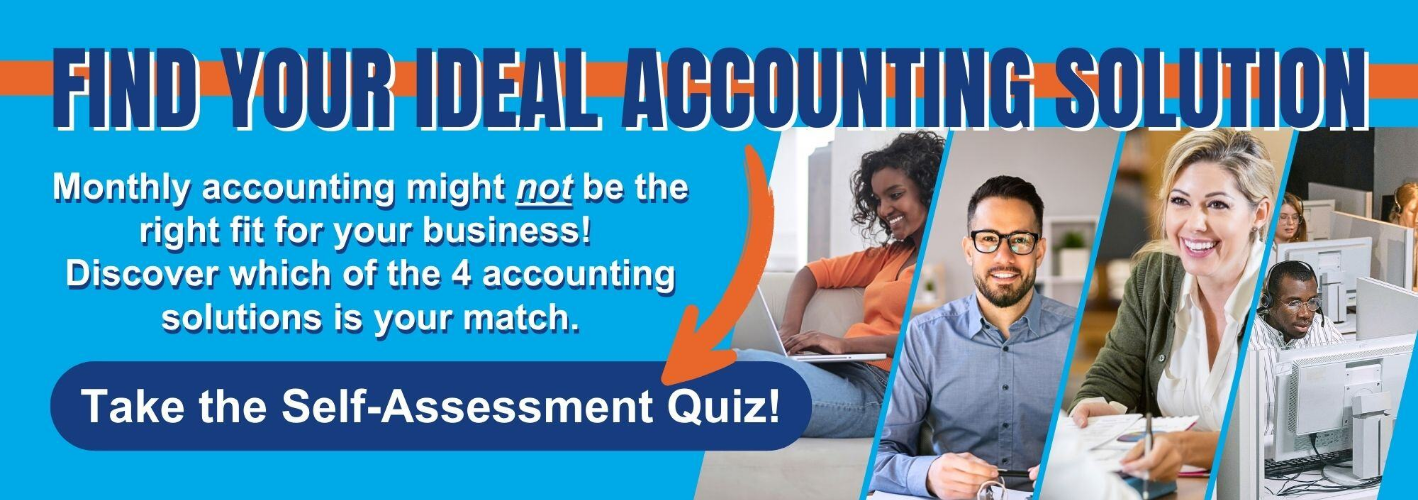Can You Change Business Entity? Converting a Sole Proprietorship to an S-Corp
April 18th, 2025 | 4 min. read

As your business grows, your tax situation becomes more complex – and that can open up new opportunities! Many Sole Proprietors choose to eventually transition to S-Corps to take advantage of tax savings and other benefits.
Is this the right move for you? Let’s talk about what you should consider and how to make the switch.
At CSI Accounting & Payroll, we’ve provided monthly accounting services to small businesses for nearly 60 years. We’ve helped thousands of clients analyze their business entity (and even switch entities if it’s beneficial), answering questions like:
- Why would a Sole Prop want to change to an S-Corp?
- Why is it critical to talk to a tax expert before making this change?
- What is the process of converting a Sole Prop to an S-Corp? What if I want to be a single-member LLC taxed as an S-Corp?
Why Change a Sole Prop to an S-Corp?
When you go from a Sole Prop to an S-Corp, some things don’t change. No matter what, you still pay income tax on your profits, and you can still use losses to offset your personal income.
So, what does change? You save on Social Security and Medicare taxes.
As a Sole Prop, you pay this 15.3 percent of all of your business’s profits. However, when you become an S-Corp, you pay 15.3 percent of your salary, then dividends don’t have any Social Security or Medicare tax.
Depending on your salary and profits, this can come out to pretty big savings! This benefit is also part of why 70 percent of our clients are S-Corps!
Talk to Your Accountant First
Don’t decide that you’re going to become an S-Corp immediately just because of the tax benefit. It’s critical to talk to your tax professional first to make sure your financial situation and timeline are ideal.
In the section above, I mentioned that you can save on Social Security and Medicare tax. The IRS states that you still need to “take a reasonable salary”, but it doesn’t state any guidelines about this. Luckily, an accountant can advise you on how much your salary and distributions should be. Plus, if you have a year-round relationship with a monthly accountant, you can check in on this (and much more) as often as you like.
Along the lines of taking a reasonable salary, an accountant needs to make sure you’re making the right profits to offset certain administrative costs and have a solid enough cash flow to cover the money you’d be taking out of the business.
How to Convert a Sole Prop to an S-Corp
If you’re already an LLC that is taxed as a Sole Prop (which is the default for single-member LLCs), you don’t need to form a new entity – you just file Form 2253 to elect to be taxed as an S-Corp.
If you’re a Sole Prop with no legal entity, you must first become either a Corporation or LLC. To become a Corporation, you’ll need an attorney to help you file Articles of Incorporation. Otherwise, to become a single-member LLC, they’ll need to file Articles of Organization. Then, you can either become an S-Corp or an LLC that elects to be taxed as an S-Corp with Form 2253.
Don’t have an attorney? If you work with CSI Accounting & Payroll, we’ll refer you to one of our trusted partners!
Maximize the Benefits From Your Entity Type!
Now that you know why a Sole Prop would want to change to an S-Corp, why it’s critical to talk to a tax expert first, and how to do the conversion process, are you ready to check out monthly accounting services?
If so, please consider CSI Accounting & Payroll! We make analyzing your entity type a crucial part of tax season every year. To see if we can be a good fit for your business, click the button below for a free consultation:
Not ready to talk? That’s okay! First, learn more about what it’s like to work with us by clicking the image below:
Brian is the owner of CSI Accounting & Payroll. After earning a double major in Accounting and Financial Management from the University of North Dakota, he joined CSI in 1996 and purchased it in 2002. With decades of experience, Brian now focuses on education: contributing to professional associations and business books, actively participating in continued learning for his team, and, of course, sharing transparent insights on CSI’s website.


